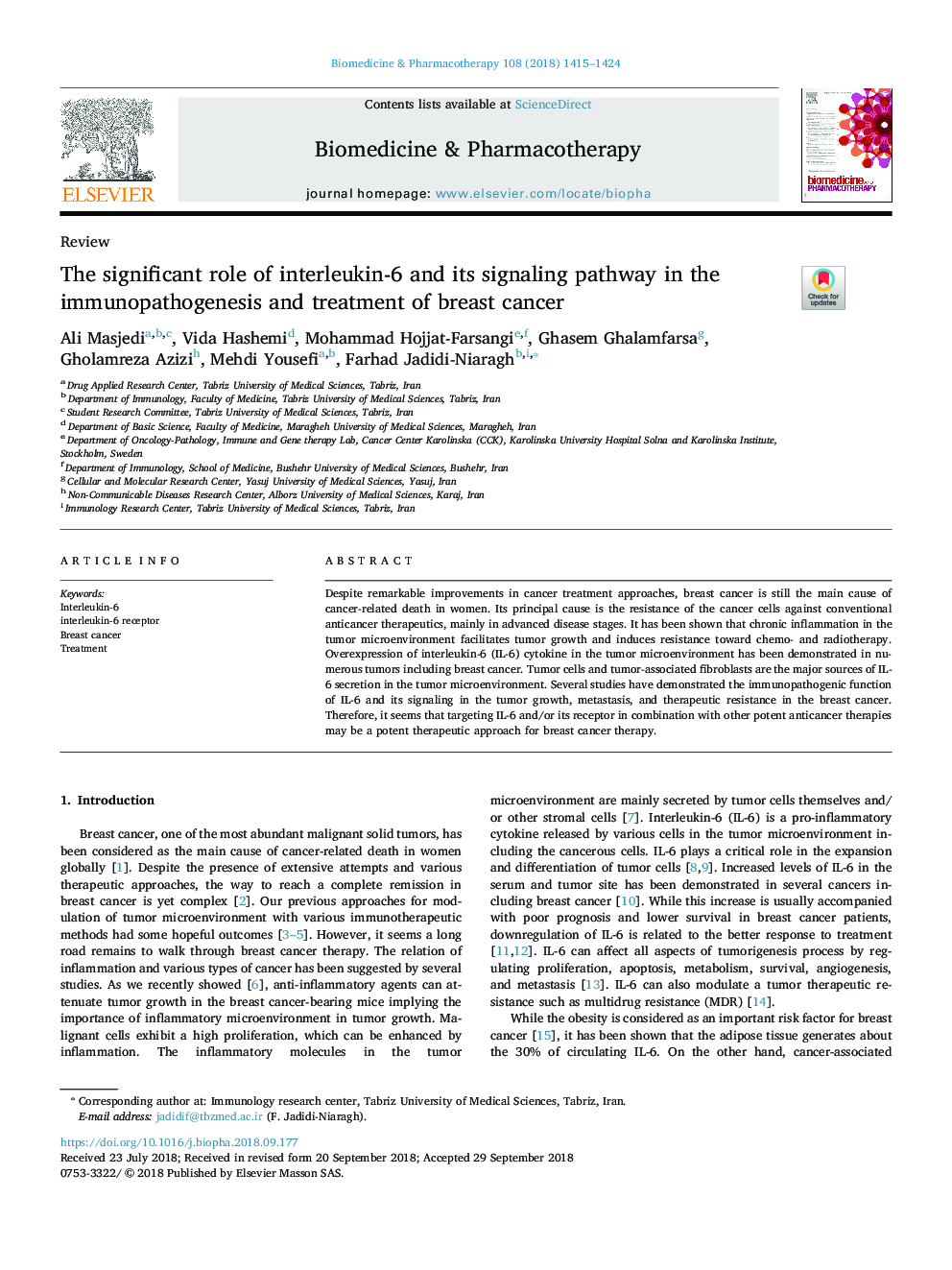| Article ID | Journal | Published Year | Pages | File Type |
|---|---|---|---|---|
| 11025739 | Biomedicine & Pharmacotherapy | 2018 | 10 Pages |
Abstract
Despite remarkable improvements in cancer treatment approaches, breast cancer is still the main cause of cancer-related death in women. Its principal cause is the resistance of the cancer cells against conventional anticancer therapeutics, mainly in advanced disease stages. It has been shown that chronic inflammation in the tumor microenvironment facilitates tumor growth and induces resistance toward chemo- and radiotherapy. Overexpression of interleukin-6 (IL-6) cytokine in the tumor microenvironment has been demonstrated in numerous tumors including breast cancer. Tumor cells and tumor-associated fibroblasts are the major sources of IL-6 secretion in the tumor microenvironment. Several studies have demonstrated the immunopathogenic function of IL-6 and its signaling in the tumor growth, metastasis, and therapeutic resistance in the breast cancer. Therefore, it seems that targeting IL-6 and/or its receptor in combination with other potent anticancer therapies may be a potent therapeutic approach for breast cancer therapy.
Related Topics
Health Sciences
Medicine and Dentistry
Oncology
Authors
Ali Masjedi, Vida Hashemi, Mohammad Hojjat-Farsangi, Ghasem Ghalamfarsa, Gholamreza Azizi, Mehdi Yousefi, Farhad Jadidi-Niaragh,
